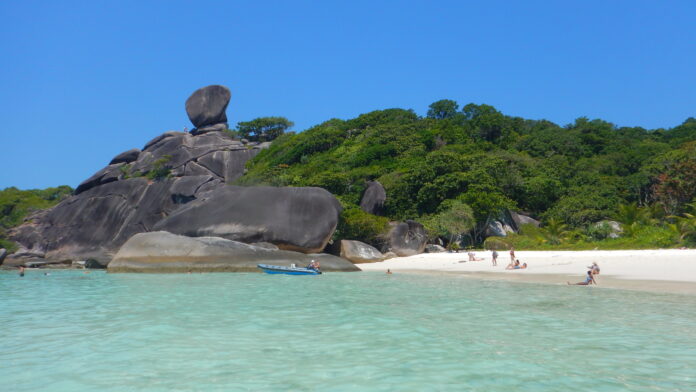Embracing the rhythmic ebb and flow of nature’s seasons, Thailand’s Similan and Surin Islands National Parks have initiated their annual temporary closure. This ritual, aligning with the tumultuous monsoon season from May 16th to October 14th, is a move welcomed by environmentalists. The closure allows the islands’ natural resources to restore themselves while facilitating maintenance and upgrades of park facilities.
As the South-west monsoon rolls in, the usually calm waters of the Andaman Sea become a maelstrom of waves, making marine travel challenging and perilous. Sarayuth Pasoh, the chief of the Similan Islands National Park, stated that this period is not only crucial for public safety but also vital for rejuvenating the park’s diverse natural resources.
“Besides improving existing facilities, enhancing nature trails, and fortifying protective patrols against illegal fishing, we are investing our efforts in critical ecological restoration. This includes launching smart patrols, repairing damaged coral reefs, and preventing any illicit poaching activities within the parks,” Pasoh explained.
Several of Thailand’s other marine national parks adhere to a similar seasonal closure to restore their ecosystems and infrastructure. Despite the temporary pause, marine enthusiasts have an all-year-round alternative at their disposal. The Phang Nga Bay National Park, known for its iconic limestone cliffs and emerald-green waters, remains open throughout the year.
Thailand’s approach to managing its national parks demonstrates a deep commitment to sustainable tourism. By allowing periods of rest and recovery, it ensures the preservation of its unique biodiversity, offering future visitors an unspoilt and vibrant natural environment to explore. The closure echoes a broader global movement to foster a balanced relationship between tourism and environmental conservation.


